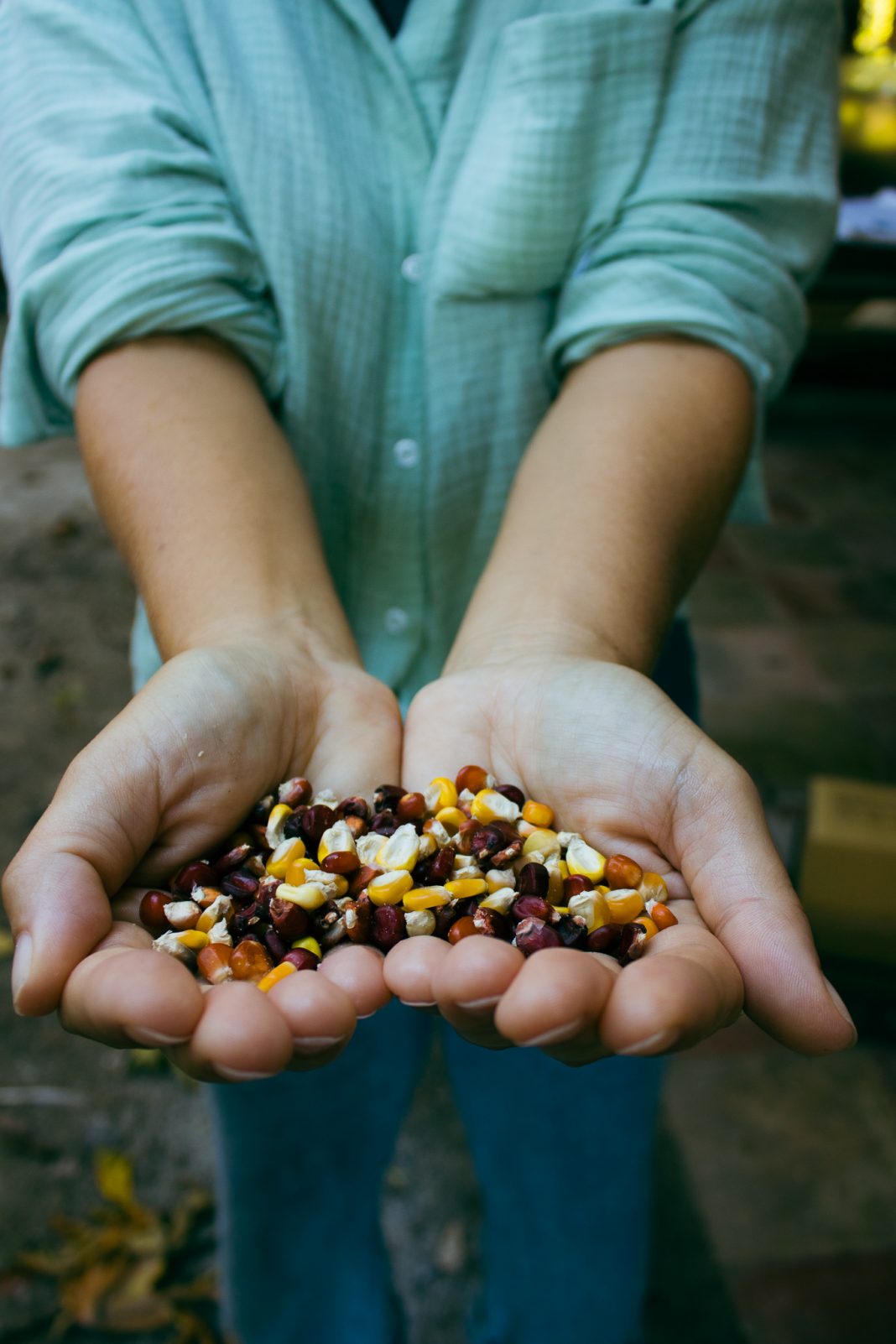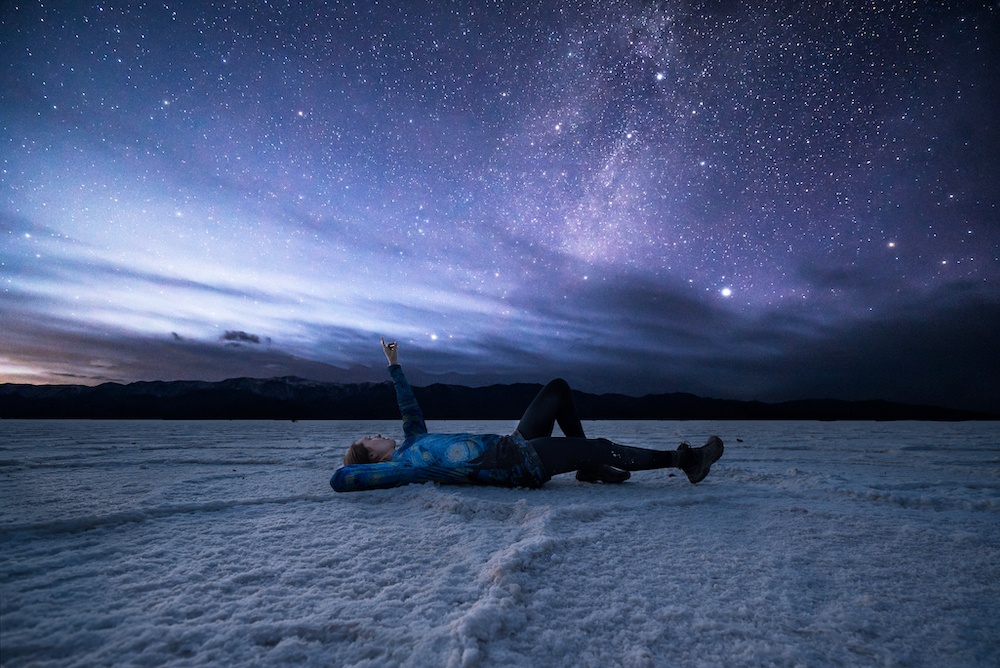Waking up in Playa del Carmen, Mexico to the abrasive sound of a car alarm was the absolute last thing I wanted after spending the last week being gently awoken by the sound of birds chirping and roosters cockadoodledoo-ing.
Being back to “reality” in a huge party town reminded me of this country’s stark contrasts – peaceful, animal-filled jungles with the kindest and gentlest neighbors are such a far cry from what many people come to know as Mexico, with its over-touristed beach hotspots that have more in common with the USA than they do with the Mexico that I know and love.
Even after living in Mexico for two years, I still find places that make my jaw drop and meet people whose sheer presence and subtle power leaves me speechless. There’s a reason why so many people choose Mexico as their forever home. My experience with Worldpackers last week reminded me of why it’s so wonderful.
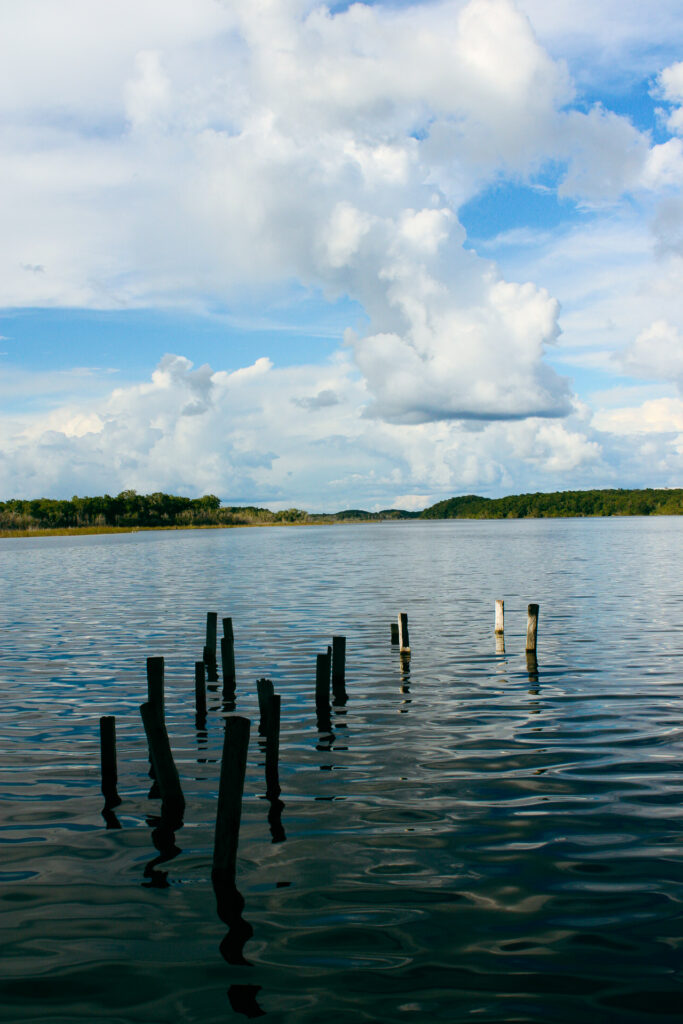
I wanted to discover something new in this country I adore so much, so I embarked on an adventure with Worldpackers to volunteer for a week in a remote part of Quintana Roo, a state that I actually lived in for about a year pre-pandemic. I knew a little bit about Mayan culture beforehand and I was hoping to deepen my knowledge on local plants and gardening techniques, but I came away from the experience with so much more than that.
I signed up to volunteer at a site called Republic of Corn, and this is my experience as a Worldpacker there:
What is Worldpackers?
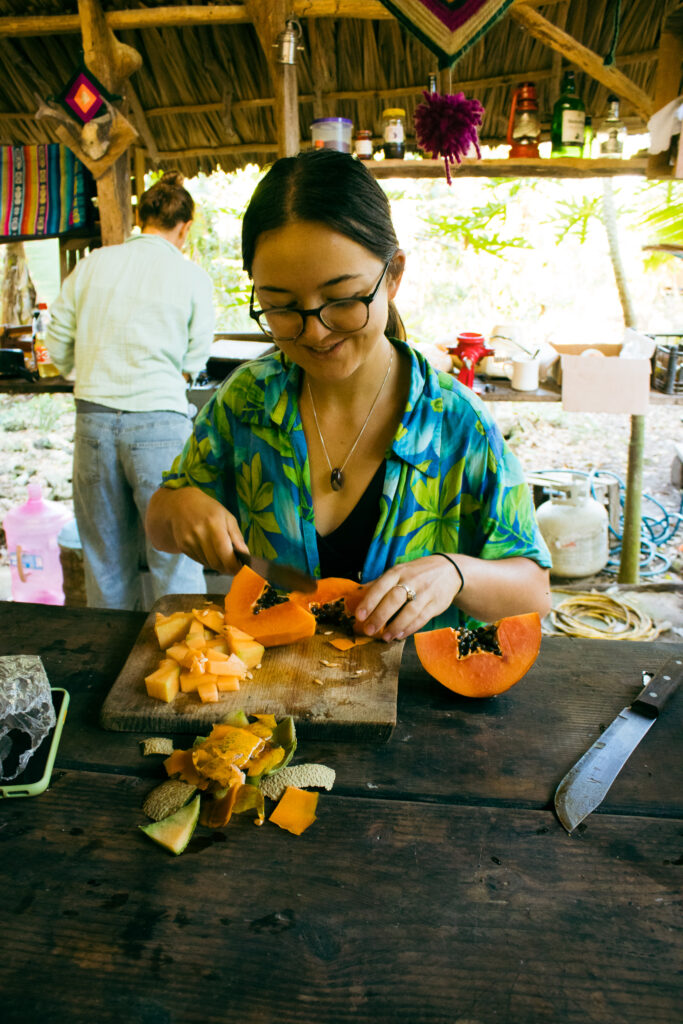
Worldpackers.com is a platform for travelers to connect with hosts in different parts of the world who offer a place to stay in exchange for a certain amount of volunteer hours. Projects vary from host to host and no two are totally alike, giving travelers ample options in over 140 countries.
The premise of Worldpackers is that travelers and hosts create meaningful relationships on the basis of collaboration and mutual growth. It’s more than just a volunteering platform, and the founders intend to make travel more accessible to those who wish to have a rich cultural experience as they visit new places. Ethical travel is immensely important to me and I am always looking for ways to support locals wherever I go.
I was excited to see the Worldpackers mission because it deeply resonated with me as a traveler. I’m endlessly curious about the world and always hoping to learn something new in my travels, so I was ecstatic to register and go through one of the Academy Certificates to see more about how to be a successful volunteer. I was so glad I did the “How to become an outstanding Worldpacker” course because it definitely helped me understand more about the kind of reciprocal relationship that the platform is looking to create.
I found Republic of Corn, sent a request and quickly got a reply from my soon-to-be host, Victor.
Meet my host, Victor.
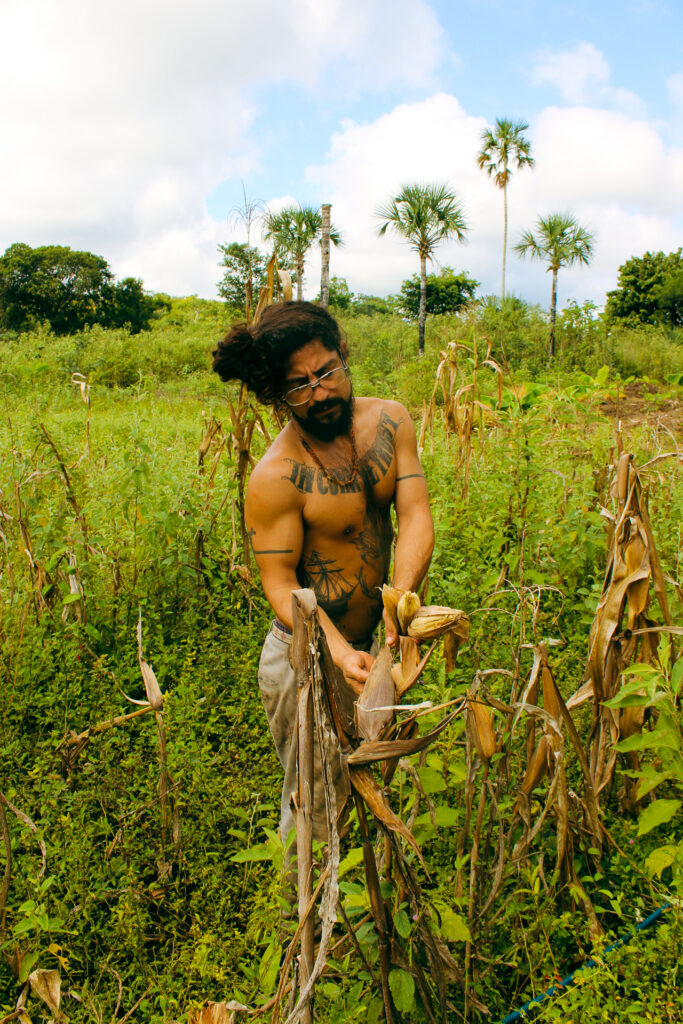
Victor is originally from Guadalajara, one of Mexico’s largest and most crowded cities. He grew up there, went to culinary school, and began traveling over 10 years ago. He often says he’s a “backpacker for life,” something I can relate to as a semi-nomad myself.
After years of traveling, Victor bought a plot of wild land in the jungle of the Yucatán Peninsula in a small Mayan village called Naranjal. Over three years ago, he started building what would eventually become the Republic of Corn, an ecological project with the goal of preserving ancient varieties of corn and sharing seeds–and knowledge–with local people.
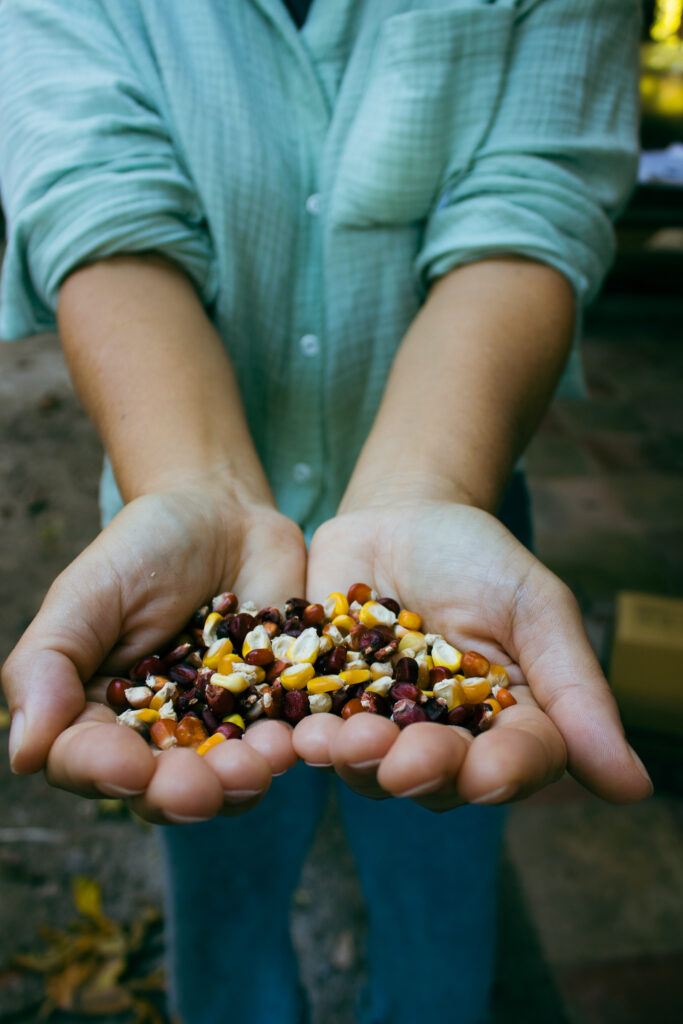
When I first met Victor, I immediately noticed his huge “In Corn We Trust” tattoo, with an intricate bundle of corn below it. Considering that the man rarely puts on a shirt, his message is easily read and enjoyed by all who know him. Victor definitely passes the Tarzan vibe check.
I quickly learned that with Victor, what you see is what you get. You see this guy with long, bouncy curls, crinkly eyes worn in from all the cheek to cheek smiles, and hands calloused from hard work. He’s warm, jubilant, and friendly to everyone. During the week I spent at the Republic of Corn, it was clear that he’s been accepted and embraced by his Mayan neighbors, even though they still see him as somewhat of a city boy.
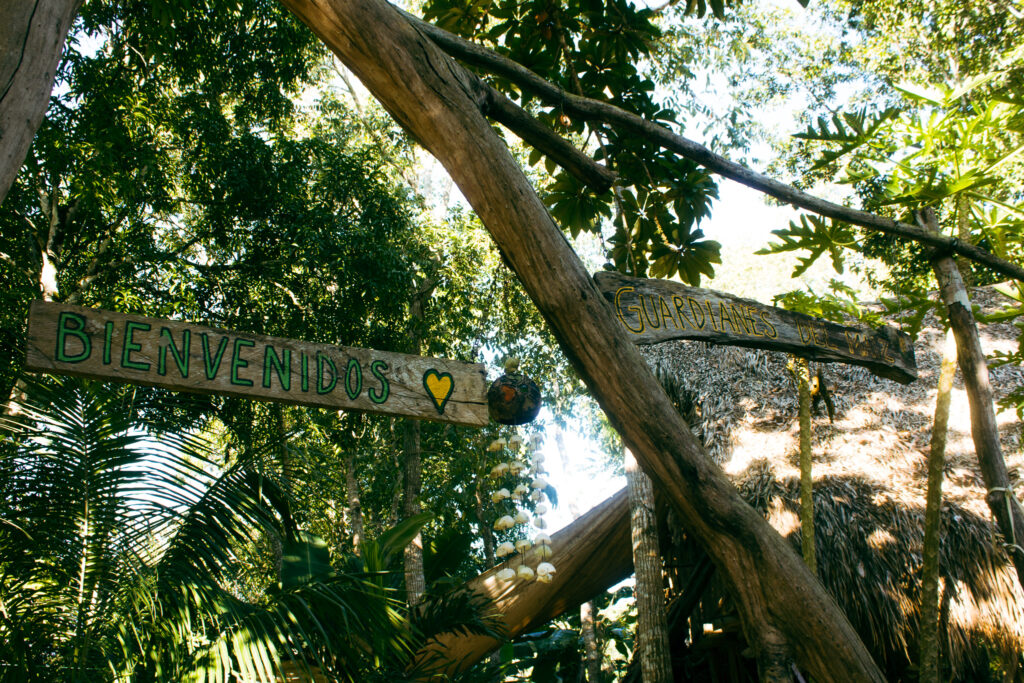
Since Worldpackers is all about creating genuine relationships, I was unsurprised that Victor was so accommodating. There were three of us volunteers–me, from the USA, and two other women; one from Canada and one from Italy. I would soon discover that my experience as a Worldpacker was not just about me learning from my host, but it would also be a week of learning from my fellow volunteers and the Naranjal community.
A week of learning, sharing, and grounding.
I had never participated in an experience quite like this one and I let Victor know that I was a novice at gardening and knew nothing about taking care of farm animals. He had an open mind and reassured me that there was plenty to do and learn at the Republic of Corn, no experience necessary.
I was curious about what the accommodations would be like at the Republic of Corn, considering how remote it is. Victor, with the help of his neighbors, built cabañas on the property which serve to house guests and volunteers. There are also tents and a loft in the main structure where the kitchen is.
One of Victor’s recent projects was building a treehouse, which he rents out on Airbnb to adventurous travelers looking for a one-of-a-kind stay. This was one of his pandemic projects, which he admitted seemed like a stretch when he first started working on its design. I was amazed when I saw the treehouse, which you can rent on Airbnb. It’s perched in a mango tree with an incredible view of the jungle and there’s sweet herb and vegetable garden below.
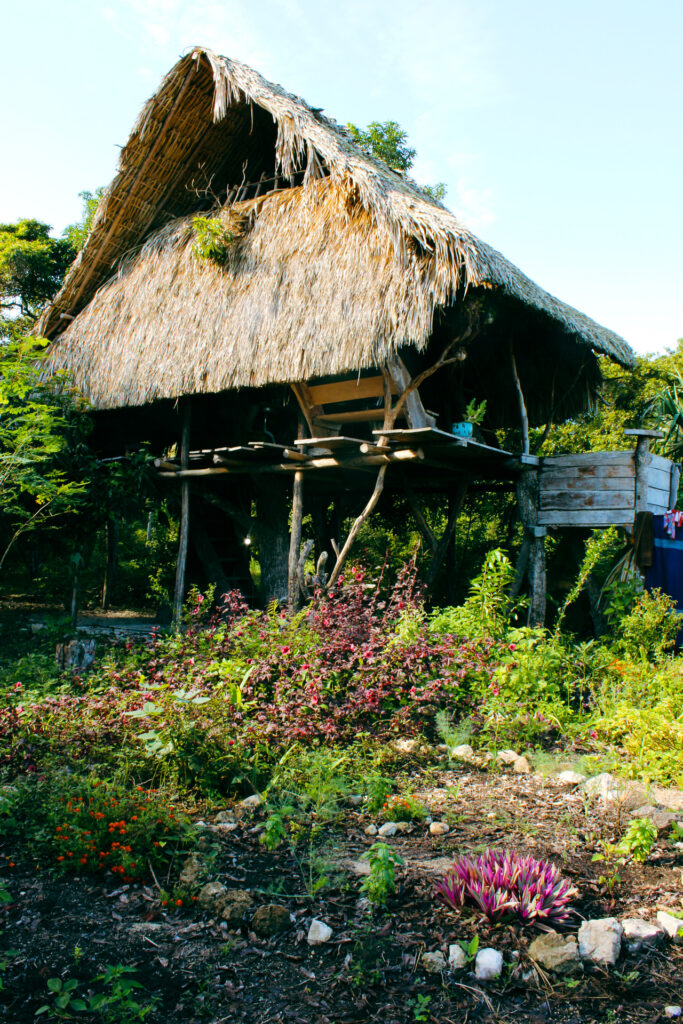
We started the week by taking a tour around Victor’s land. We met all of his beloved animals–first the two cats and two dogs, then on to the two horses, and all of his chickens, ducks, and fish. Eventually, he’d like to raise enough funds to expand his man-made fish pond and put in a water irrigation system.
We learned how to feed the animals, taking note on the very specific order and ritual of things. Each morning and evening, feeding the animals was a top priority. Victor let us know, “I don’t eat until all of my animals have eaten.” One morning it was raining and took us all a little longer to roll out of bed and we paid the consequences with some very rowdy animals.
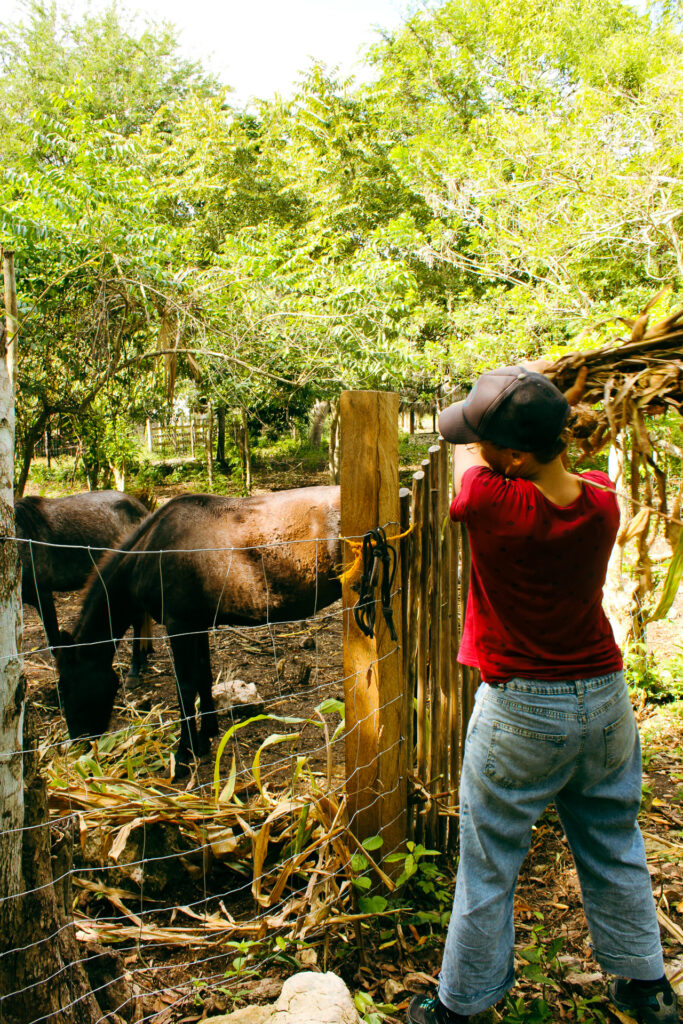
The role of a volunteer at the Republic of Corn is flexible and spontaneous. Victor and his partner Lexi (who unfortunately wasn’t there because she was traveling) are always working on something different and volunteers get to play a part in whatever they’re getting up to there. For us, it was mostly feeding the animals, planting some trees, and doing a little bit of cleanup.
“Here at the Republic of Corn, we make sure that we’re always enjoying ourselves. Think of it like this: we work 40% so we can enjoy 60%,” Victor informed us. Sure, we got sweaty and sunkissed in the mornings while working in the field, but we got to enjoy the rest of the day learning about local plants, hanging out with neighbors, and having long talks about life, travel, and the planet.
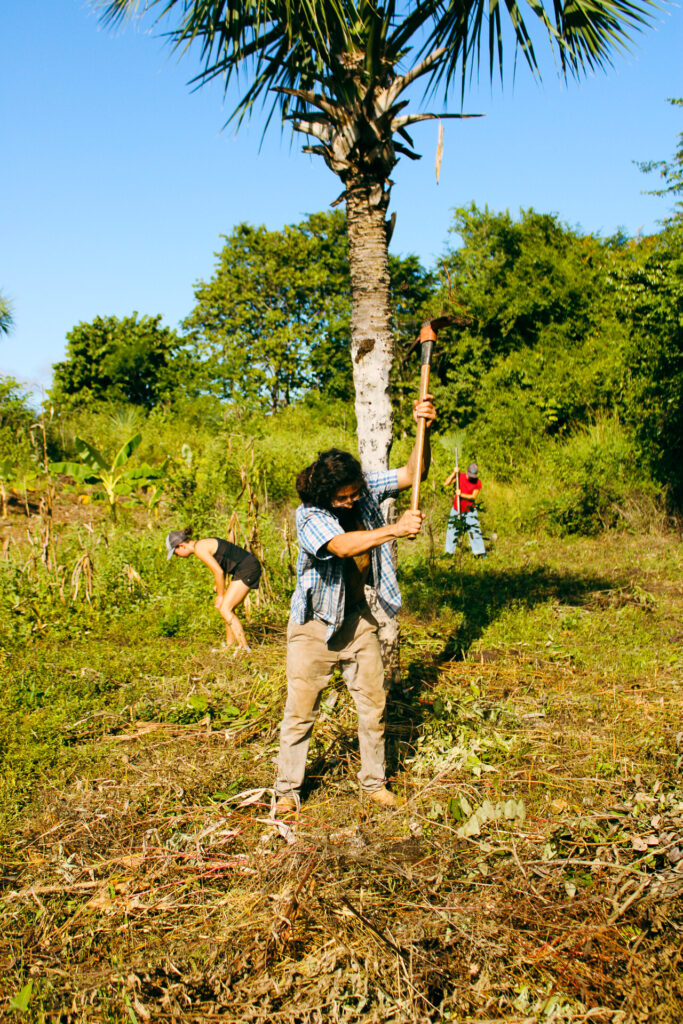
People like Victor and Lexi, who leave behind their cities and/or countries to go live in the middle of the jungle, don’t just happen. They don’t wake up one day and randomly think “oh, I think I’ll go do that.” The urge to disconnect is one that I know very well. It comes from a deeply rooted knowing that the way humans are living today is not how it was meant to be. Something went wrong and now our planet is paying the price. I think that’s why so many young people like them are choosing more alternative ways of life and dedicating their time to doing projects like this one.
My time in Naranjal was a breath of fresh air, to say the least. It was a reminder that there is hope, and there are people who are still taking care of the earth–who are “guardians,” as Victor would put it.
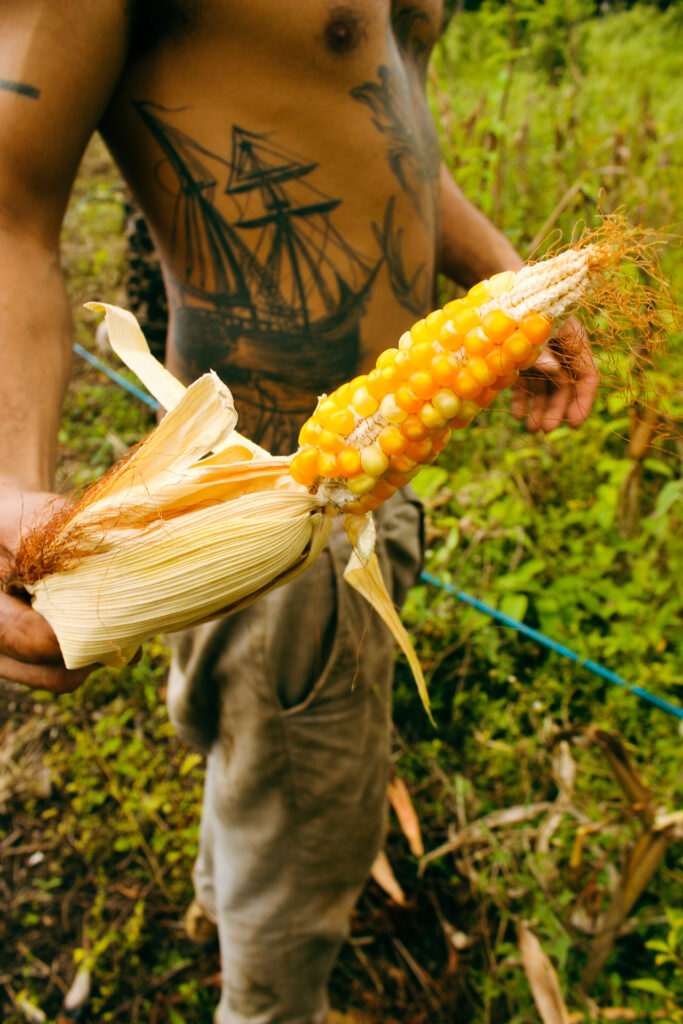
During my stay at the Republic of Corn, I had the immense privilege of meeting a local family that Victor and Lexi are close with. The matriarch of the family, Doña Isabel, regularly hosts Republic of Corn volunteers to come to her house to learn how to make handmade tortillas. When Victor pitched us the idea of going to meet her, it was a resounding “YES!” from all three of us.
That first morning that we hung out with Doña Isabel and her family, I was thinking a lot about how incredible it is that the Maya people still hold on so dearly to their traditions. From the way their houses are built to hand making tortillas, the passage of time hasn’t stopped some families from tapping into ancestral wisdom. Sometimes I stop and think, how did we get so far away from our roots? and then I have experiences like this one that remind me that not all of us have to be disconnected from earthly wisdom, traditions, and nature.
-
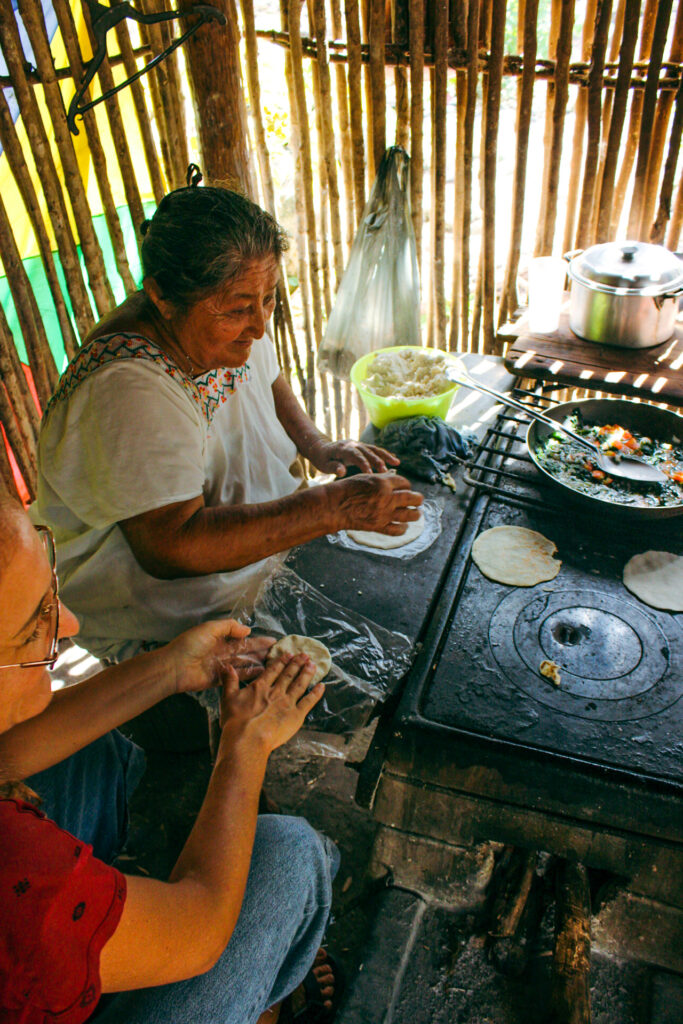
Doña Isabel, with her quick and nimble hands, showing us how to make tortillas. -
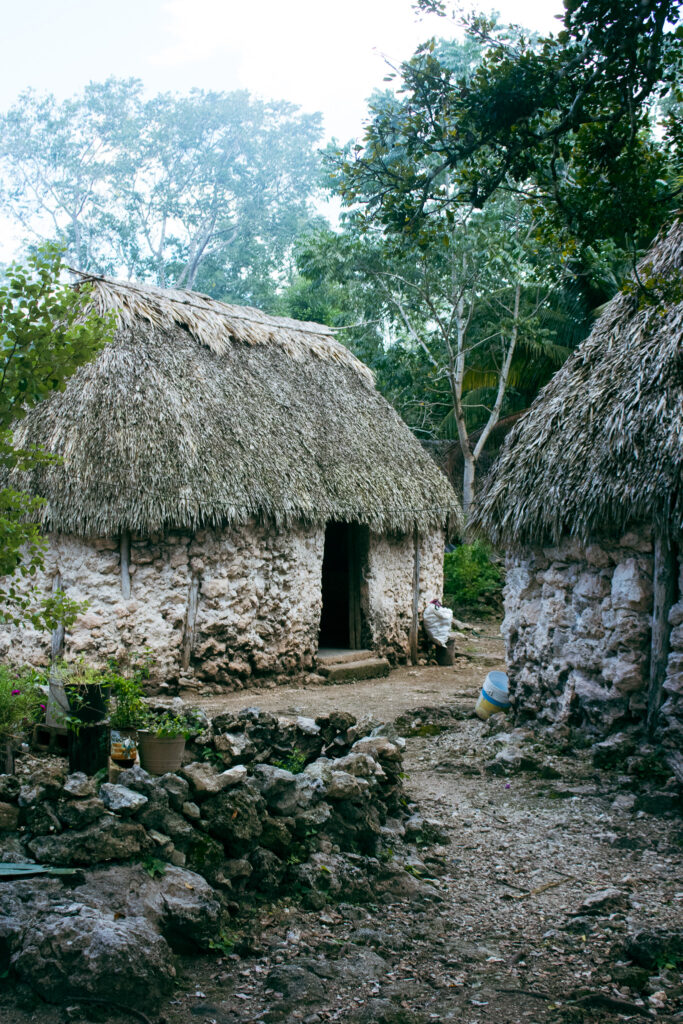
Typical Mayan homes are oval shaped with palm frond roofs.
Spending time with Doña Isabel was one of my favorite parts of the week. We joked about my poorly made tortillas, and I even got to use my doula expertise to help her daughter-in-law breastfeed her newborn infant. If you have ever had an experience that warms your heart so much that it’s difficult to describe it, you know how hard it is to explain to other people what that feels like.
Isn’t that an incredibly beautiful thing, though? To have experiences that leave you speechless and full of awe? I think that’s the kind of experience that Worldpackers hopes to facilitate. More than learning a new skill, which I certainly did, I had a deeply moving experience that left my heart full and my mind inspired.
Why you should try Worldpackers
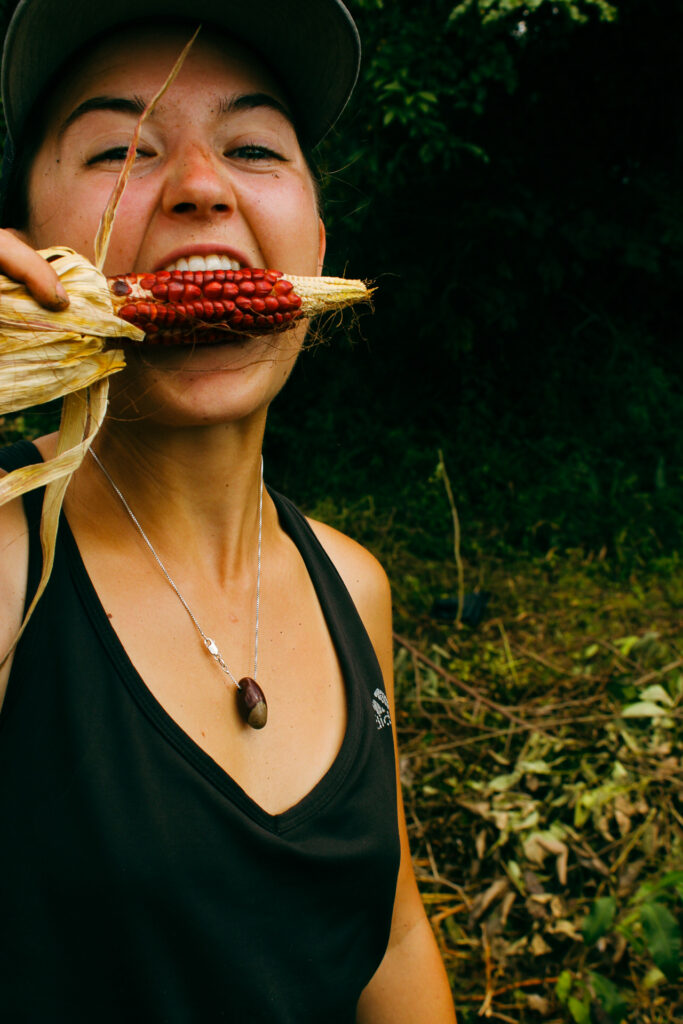
If you are like me and other Worldpackers, you love a good adventure and you are always looking for ways to have a less-than-typical travel experience. I’m not the kind of gal who books a week at a luxury resort and I don’t remember the last time I stayed in a regular hotel.
When I travel, I want to learn. I want to get out of my comfort zone, to go there. Why else do we go to new places? For me, and perhaps you too, traveling is the thing that brings me the most joy. That’s why Worldpackers was such a great option for me.
There are so many different hosts on Worldpackers who are doing incredible things. From eco village projects to backpacker hostels, there is something for a multitude of travelers. Want to learn how to build with natural materials? Learn a new language? Learn how to grow your own food? There’s a Worldpackers host to teach you.
It’s easy to become a member, starting at $49 for a full year of access to the platform and the various hosts that you may meet through it.
My host taught me more than how to plant trees and grow food in the jungle. He taught me about meaningful collaboration, flexibility, and the power of a single seed. Victor started the Republic of Corn with a single idea and plenty of fuel for his dreams. Seeing how his dream is slowing coming to fruition is inspiring, even though some of his place truly looks like the work of a madman. I think we can all learn something from that.
Everybody has something to teach us, and we all have something to teach or share with the world. Have you thought about yours yet?
Pin me for later:
*This post was brought to you in collaboration with Worldpackers. All opinions shared about my magical experience are my own.
There has never been a better time to plan your next trip and make your Dream vacation a reality . Whether you've been dreaming of relaxing on a sun-kissed beach, exploring ancient cities, or embarking on an epic adventure, now is the perfect moment to make it happen.


